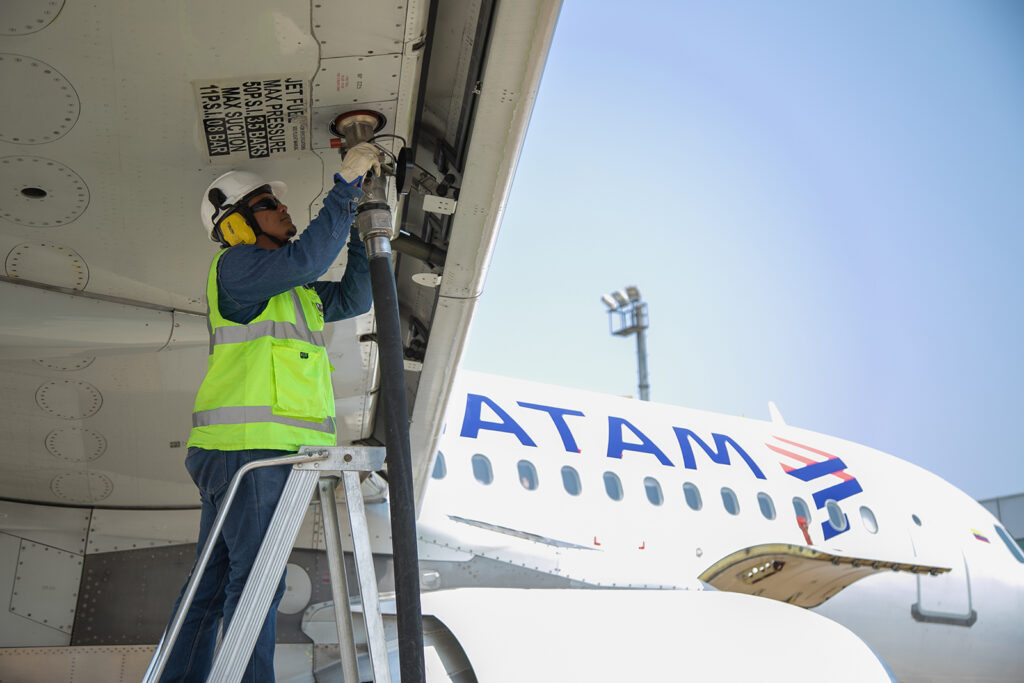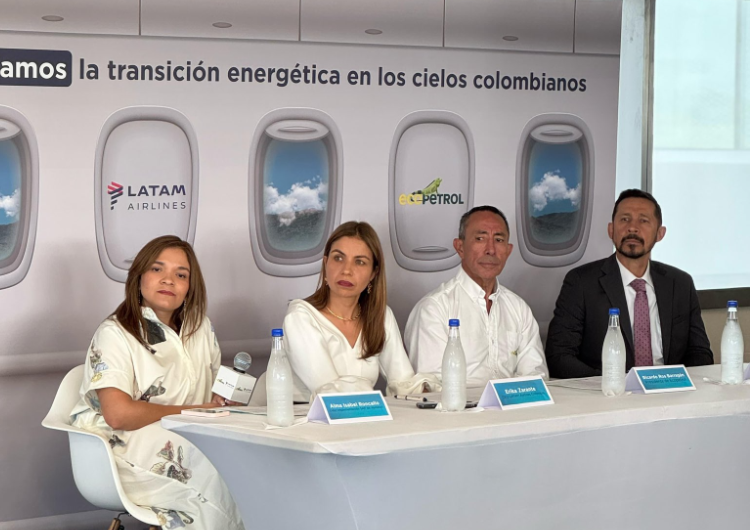
Ecopetrol and LATAM Airlines Strengthen Sustainable Aviation in Colombia

From Ernesto Cortissoz Airport in Barranquilla, Ecopetrol and LATAM Airlines Colombia announced a strategic alliance to promote the energy transition in the aviation sector.
This agreement aims to combine the expertise of both companies: Ecopetrol in fuel production and LATAM in airline operations and sustainable aviation fuel (SAF) testing.
First Flights with Low-Emission Fuel
As part of this collaboration, LATAM Airlines Colombia will operate more than 700 flights using Jet A1 co-processed with 1% renewable raw materials, produced at Ecopetrol’s Cartagena refinery.
This fuel will be distributed at the airports of Barranquilla, Medellín, and San Andrés, marking a milestone in the adoption of SAF in the country.
For Ricardo Roa Barragán, president of Ecopetrol, this initiative represents a key step toward developing more sustainable fuels:
“This is the beginning of a transformation that will enable the production and use of sustainable aviation fuels in Colombia and Latin America. At Ecopetrol, we remain committed to innovations that bring us closer to fuels with up to 50% renewable components.”
Meanwhile, Erika Zarante, CEO of LATAM Airlines Colombia, emphasized the importance of this agreement in the airline’s environmental strategy:
“LATAM was the first airline to operate flights with biofuels in Colombia. This alliance is another step forward in our commitment to reduce aviation’s carbon footprint and strengthen local infrastructure for SAF development.”

Emission Offsets and Supply Chain
In line with its sustainability goals, LATAM will offset the emissions generated by transporting this fuel through the Co2Bio project, which protects over 270,000 hectares of forests and wetlands in Colombia’s Orinoquía region.
Additionally, the distribution and storage of the co-processed fuel will be managed by World Fuel Services and Chevron.
Andrés Roque, Vice President of Supply for Latin America at World Fuel Services, highlighted the importance of this regional effort:
“We have supplied more than 170 million liters of SAF worldwide. Being part of this initiative in Latin America demonstrates our commitment and that of our strategic partners.”
Research and Development of SAF in Colombia
The fuel used in this alliance is the result of more than 15 years of research by the Colombian Institute of Petroleum and Energy for the Transition (ICPET), which has developed methods to incorporate renewable raw materials into refining.
The co-processed Jet A1 fuel was produced in October 2024 at the Cartagena Refinery and meets international ASTM D1655-24b standards, ensuring its compatibility with commercial aircraft without technical modifications.
Looking ahead, Ecopetrol plans to establish sustained SAF production at the Cartagena refinery and develop a dedicated plant in Barrancabermeja.
Depending on the technologies applied, this fuel could reduce CO₂ emissions by 50% to 80% compared to conventional Jet A1.
LATAM’s Commitment to Sustainable Aviation in Colombia
LATAM Airlines has been working for over a decade to promote sustainable fuels in Latin America. In 2013, it operated the first flight with biofuel in Colombia, and since then, has formed alliances to strengthen the regional industry.
A study led by LATAM and Airbus, in collaboration with the Massachusetts Institute of Technology (MIT), found that Colombia has one of the highest SAF production potentials in the region, thanks to its agricultural capacity, competitive costs, and biofuels expertise.
With this move, Colombia advances on its roadmap toward more sustainable aviation, driven by innovation, public-private cooperation, and strong technical and industrial expertise.





